How to save watermelon seeds – according to a grow your own expert
Collect the seeds from this year's harvest and you can grow a new crop next spring

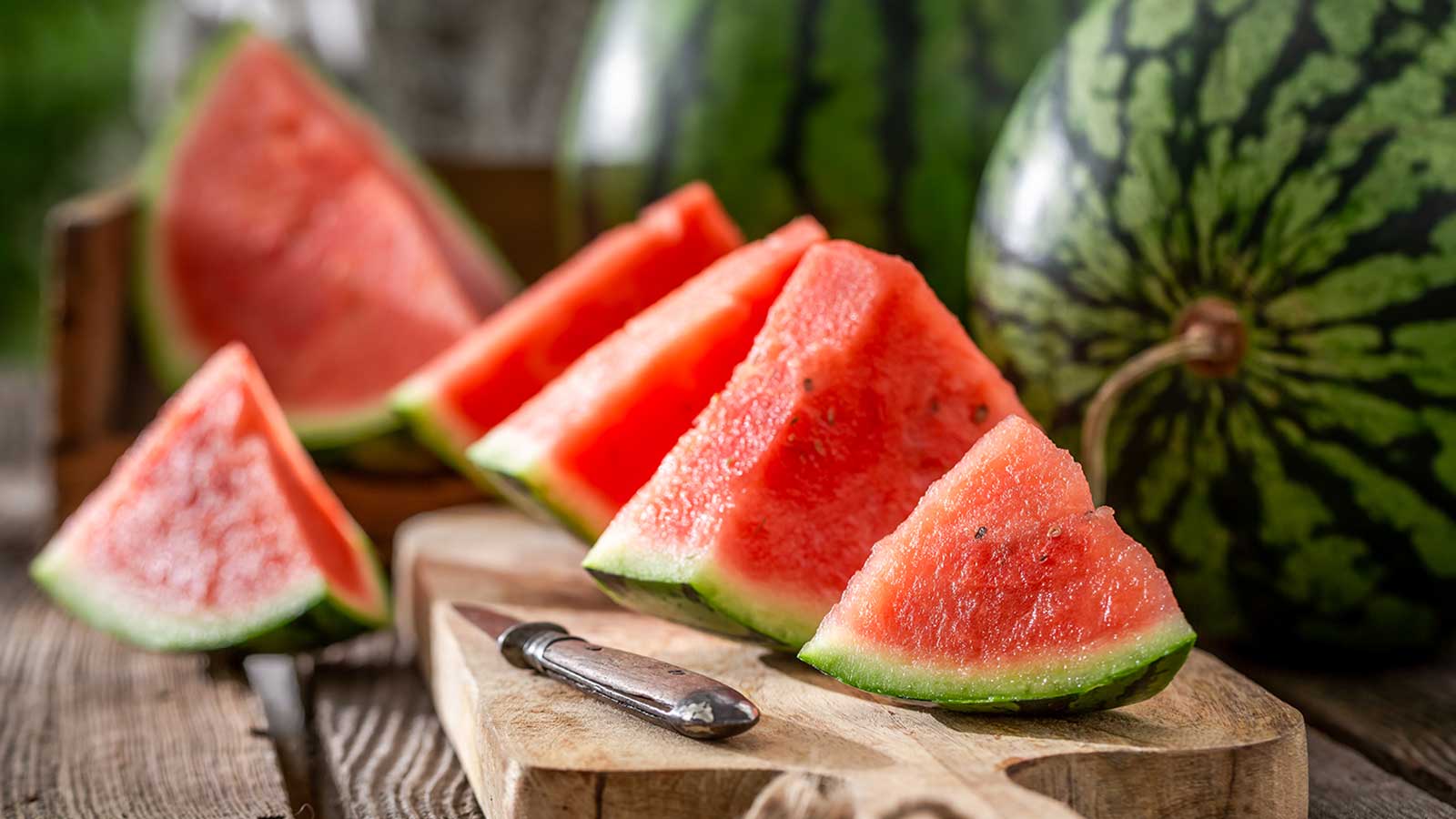
A refreshing slice of watermelon is a simple yet delicious summertime treat – and if you live in the right climate, or have a greenhouse, they're a rewarding crop to grow. Once you've eaten the ripe fruits, it's worth putting the seeds aside rather than discarding them, so you can plant even more next spring.
Not only is this a sustainable approach to growing watermelons year after year, but it's also cost-effective, as Charmaine Peters, a grow-your-own expert, points out. Plus, it's relatively straightforward, once you've got the right know-how.
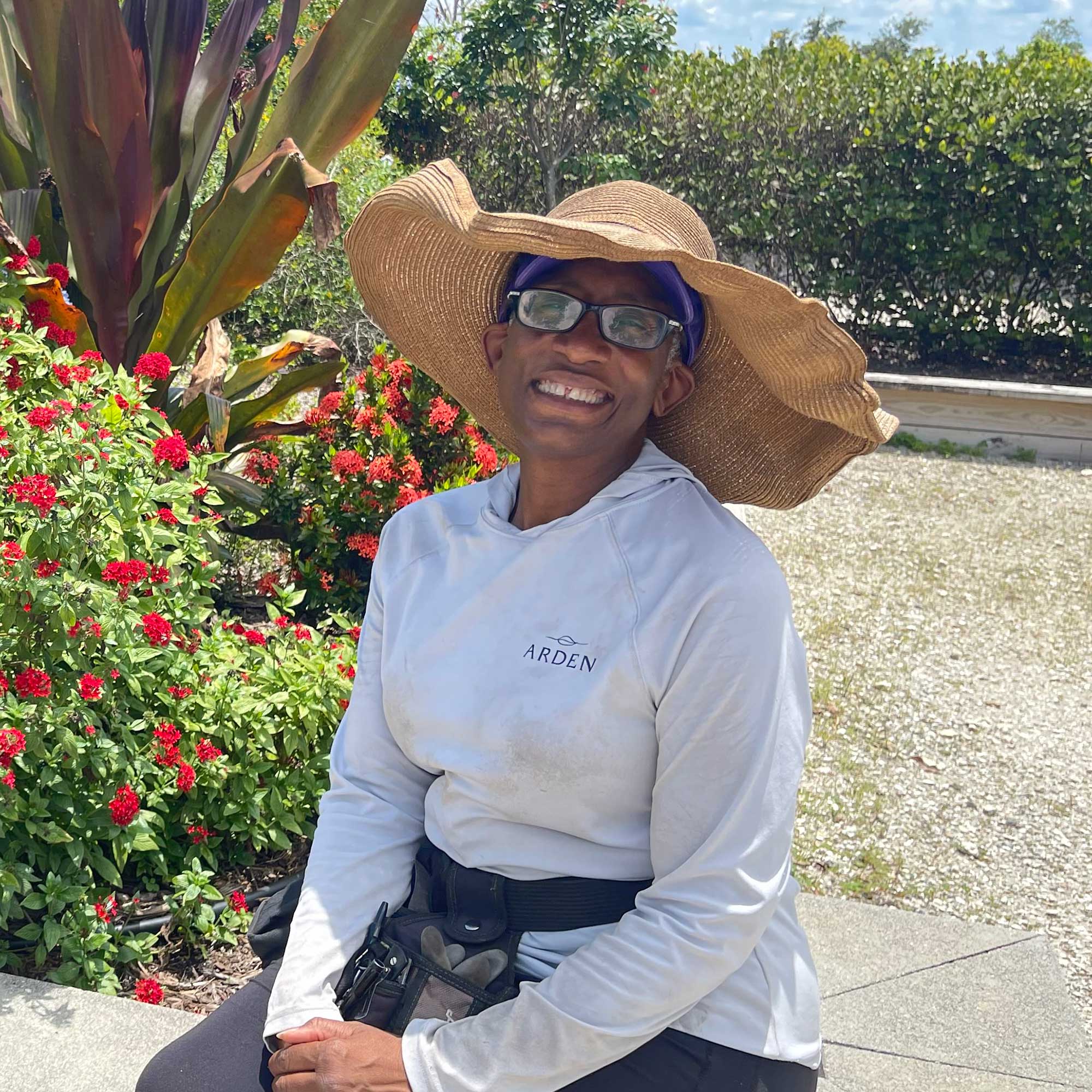
Charmaine Peters is the Farm Director at Arden, an Agrihood community in Wellington, Florida. She manages the community’s five-acre working farm, as well as a monthly farm-share program for residents.
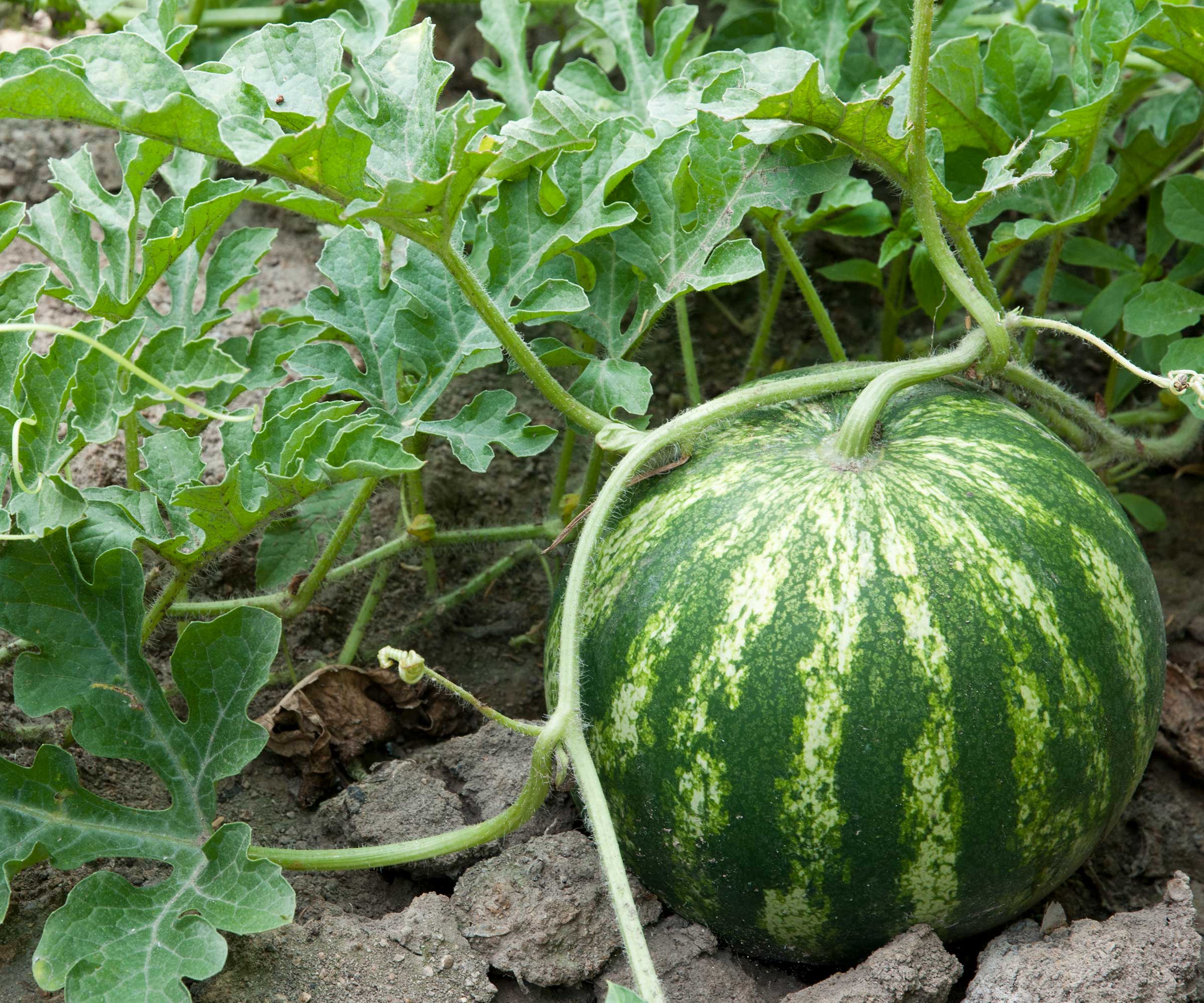
Watermelons are a rewarding crop to grow
How to save watermelon seeds – pro tips for success
Grow delicious fruits with this practical advice.
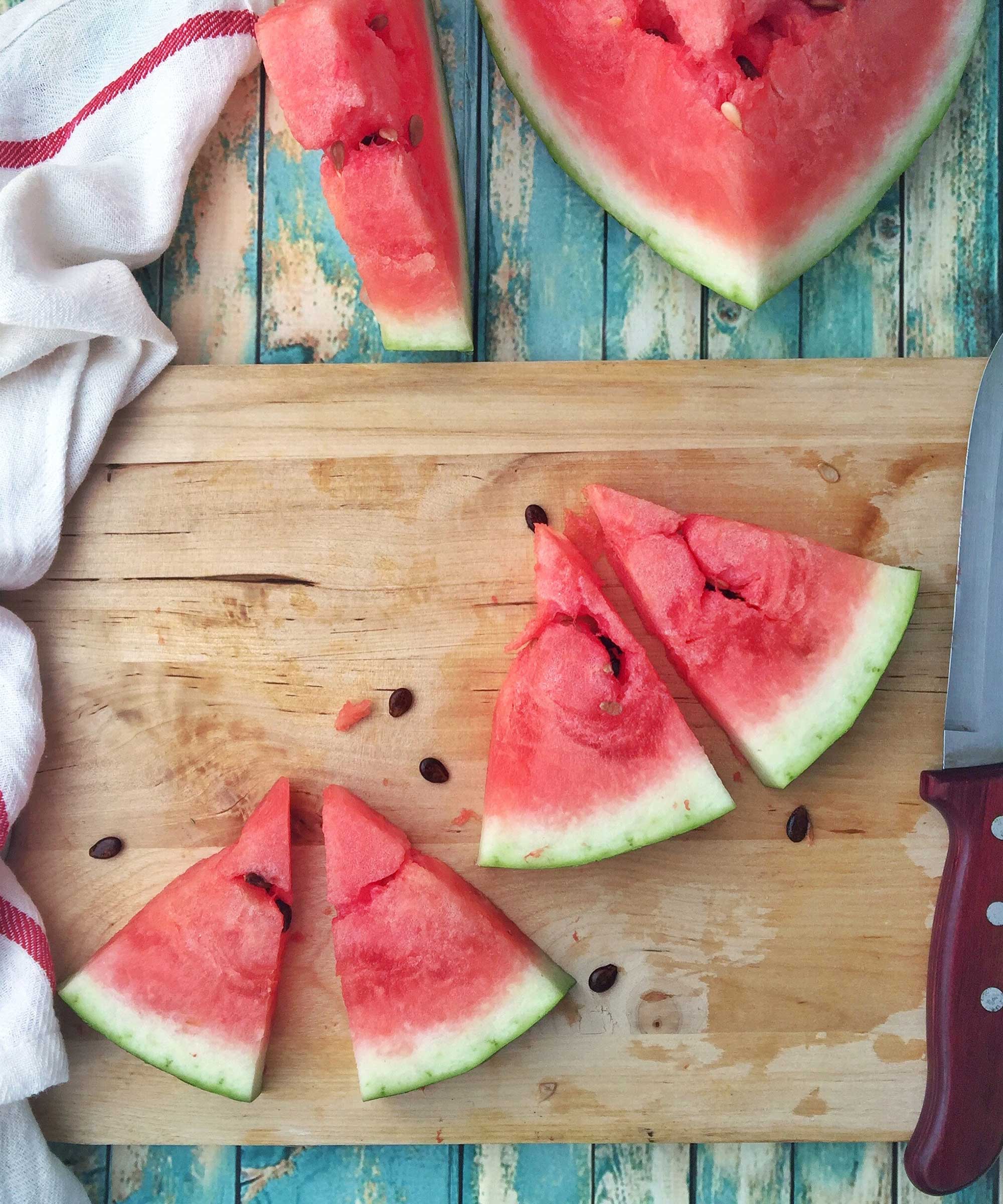
The seeds can easily be harvested as you eat these fruits
Choosing watermelons to harvest seeds from
'Make sure you are saving seeds from either open-pollinated or heirloom varieties, not a hybrid variety,' says Charmaine.
'Heirloom varieties have proven their quality and have been resilient in adapting to local growing conditions. They are genetically stable and have traits like the parent watermelon plant.'
Heirloom varieties include 'Georgia Rattlesnake', 'Orange Tendersweet', and 'Black Diamond' available from Ferry-Morse.
'Open-pollinated varieties are often more readily available and cheaper than heirloom seeds,' Charmaine continues. 'Both varieties offer consistency that allows you to maintain the desired flavor, color, and size in your watermelons.'
Design expertise in your inbox – from inspiring decorating ideas and beautiful celebrity homes to practical gardening advice and shopping round-ups.
Planting seeds from hybrid varieties, on the other hand, can have much less predictable results – plus, some are sterile or seedless. This applies when saving seeds from cucumbers, too.
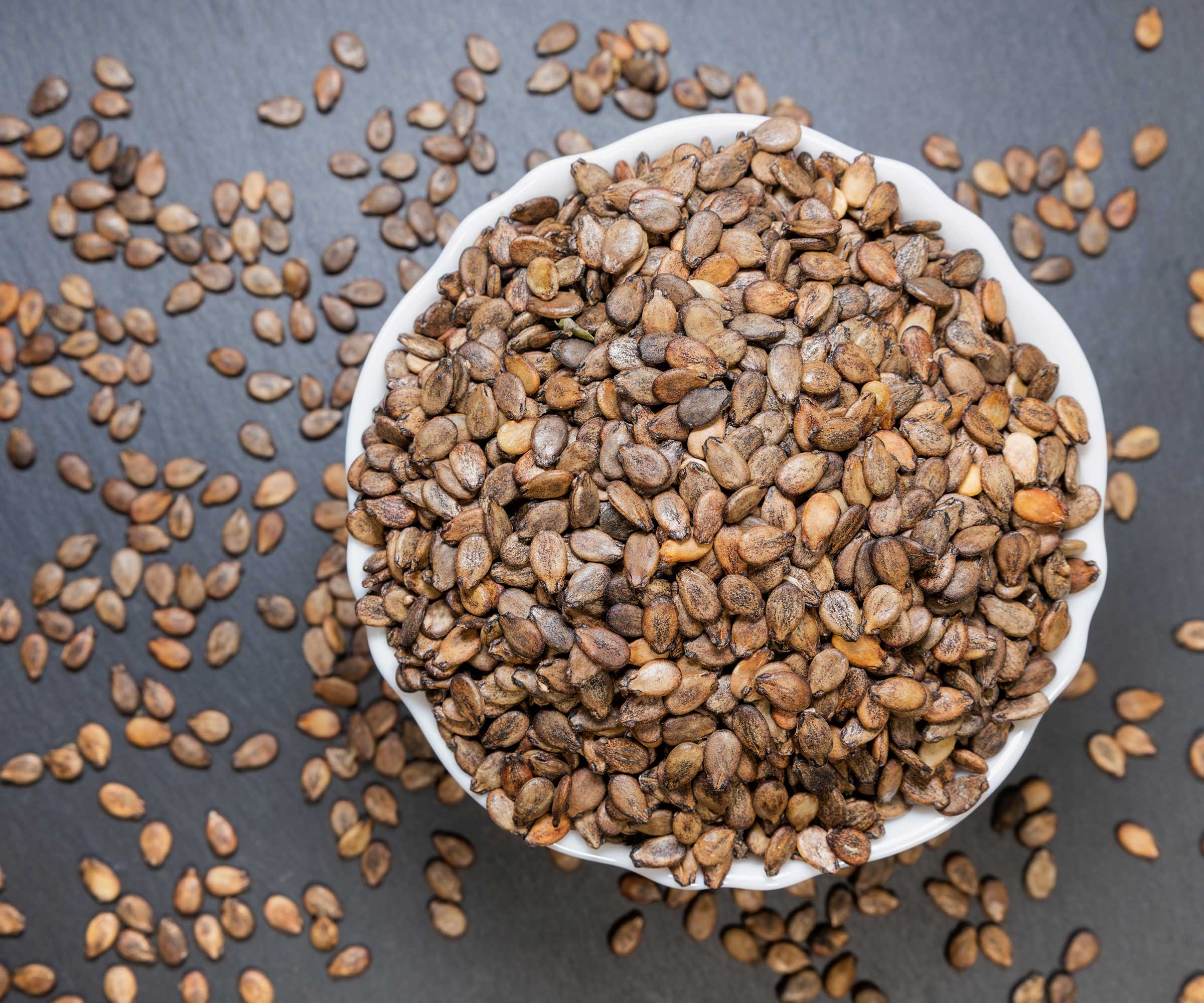
Avoid harvesting the seeds from hybrid varieties
When to harvest watermelon seeds
Choose a fully ripe watermelon to collect seeds from. 'It should have a creamy yellow spot on its underside, where it rested on the ground and matured under the sun,' says Charmaine. 'You can also spot a ripe watermelon by checking its stem, which should look brown,' she adds.
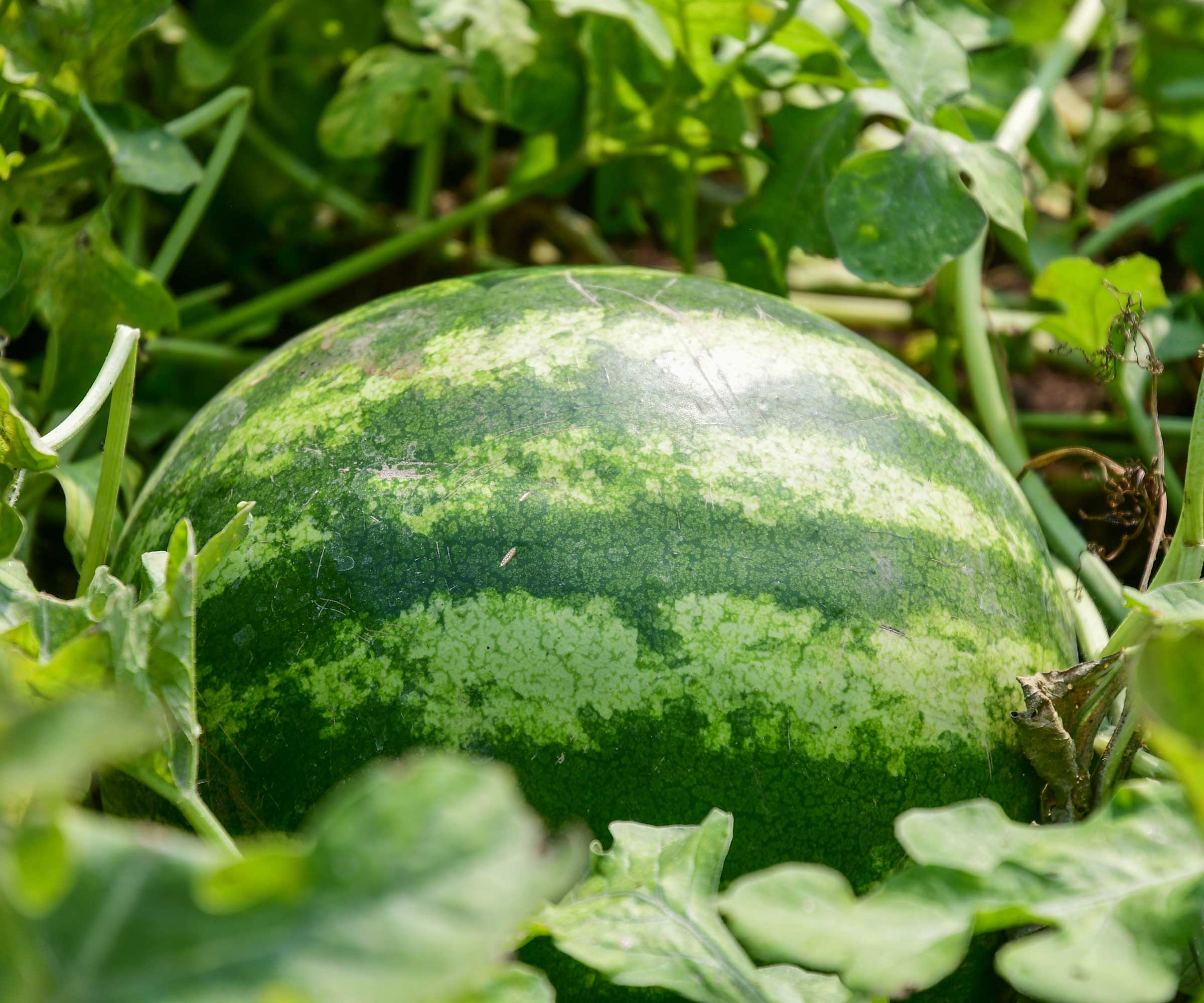
Harvest seeds from ripe fruits
How to collect watermelon seeds in 4 steps
Once you've chosen your watermelon, follow Charmaine's step-by-step advice to collect the seeds:
- 'You can harvest the seeds as you eat the watermelon, or you can pick the seeds out by hand,' Charmaine says. 'Disregard any white, underdeveloped seeds and save the black ones, which should look plump and full.'
- Put the seeds in a glass or a plastic container, fill it with water, then give the mixture a stir to help wash off the pulp.
- Let them sit in the water at room temperature for two to three days, stirring occasionally. Over this time, the viable seeds should sink to the bottom, while the bad seeds will float, Charmaine says.
- Pour out the water, discarding the floating seeds. Lay the remaining seeds on a paper towel or newspaper and let them air dry in a cool area away from direct sunlight until they are brittle. They are then ready to be stored, before being planted in the spring.
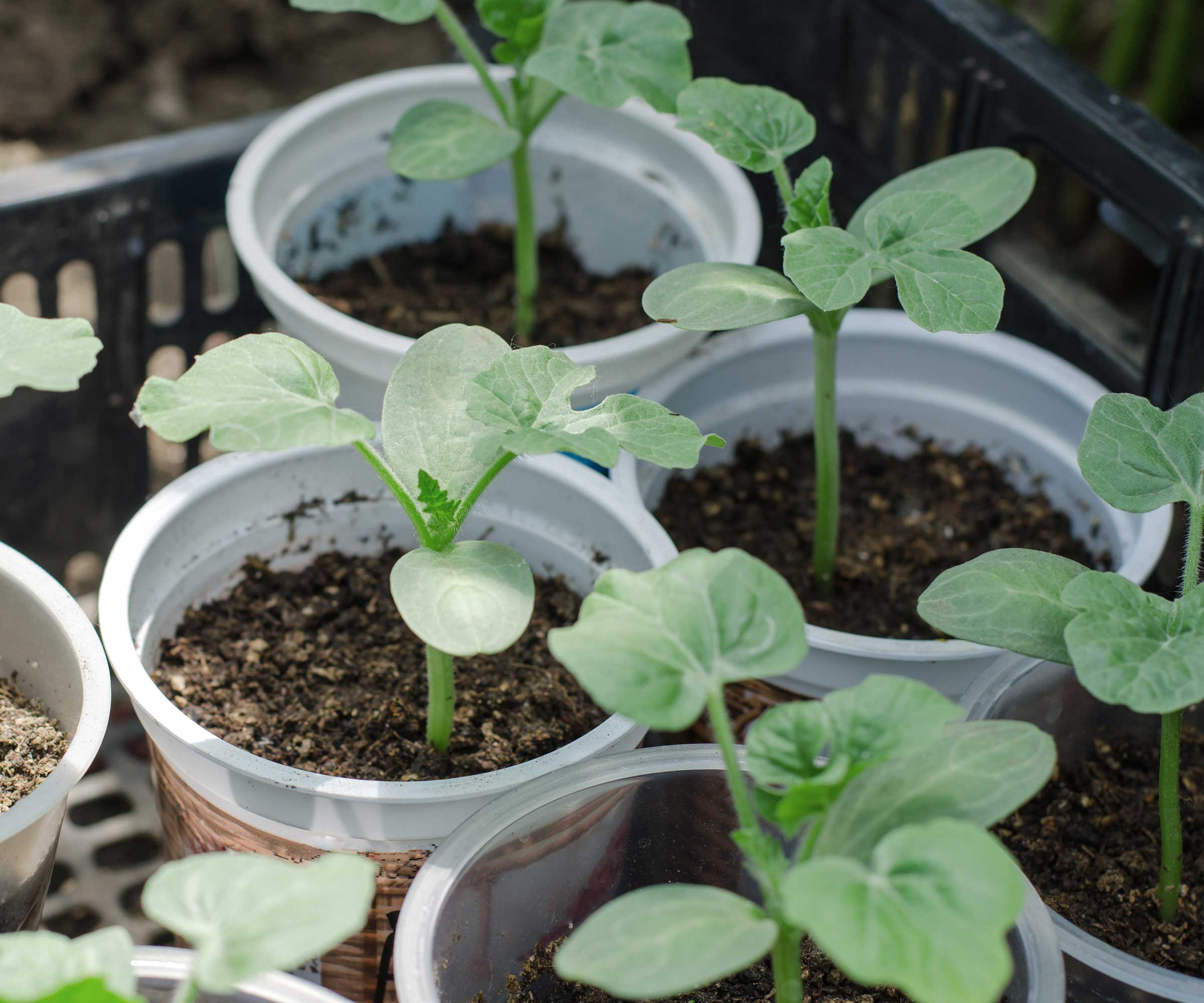
The collected seeds can be safely stored until it's time to plant them
FAQs
How should you store watermelon seeds?
'Put them into an air-tight container and label the container with the date,' says grow-your-own expert Charmaine Peters. 'This information is valuable because seed viability can decrease over time. By knowing the age of the seeds, you can prioritize using the older seeds before they lose their germination potential.'
The container can then be placed in the refrigerator or in a cool, dry, and dark location, such as a pantry or a basement, Charmaine continues. 'Avoid storing them in areas with temperature fluctuations or high humidity, as these conditions can reduce seed viability.
'The seeds can be stored for up to five years. Check the seeds periodically to ensure they remain viable for planting. If you notice any signs of mold, mildew, or damage, remove those seeds from the batch.'
Can you save seeds from a store-bought watermelon?
While it is possible to save seeds from a store-bought watermelon, note that these fruits are more likely to be a hybrid variety. This means the results will be unpredictable – or the seeds may not germinate at all.
Alongside watermelon seeds, why not consider collecting seeds from other crops and plants in your yard, too? Whether you're harvesting seeds from tomatoes or coriander, sunflowers or zinnias, it's a relaxing and rewarding task that will save you the cost of buying new packets each year.
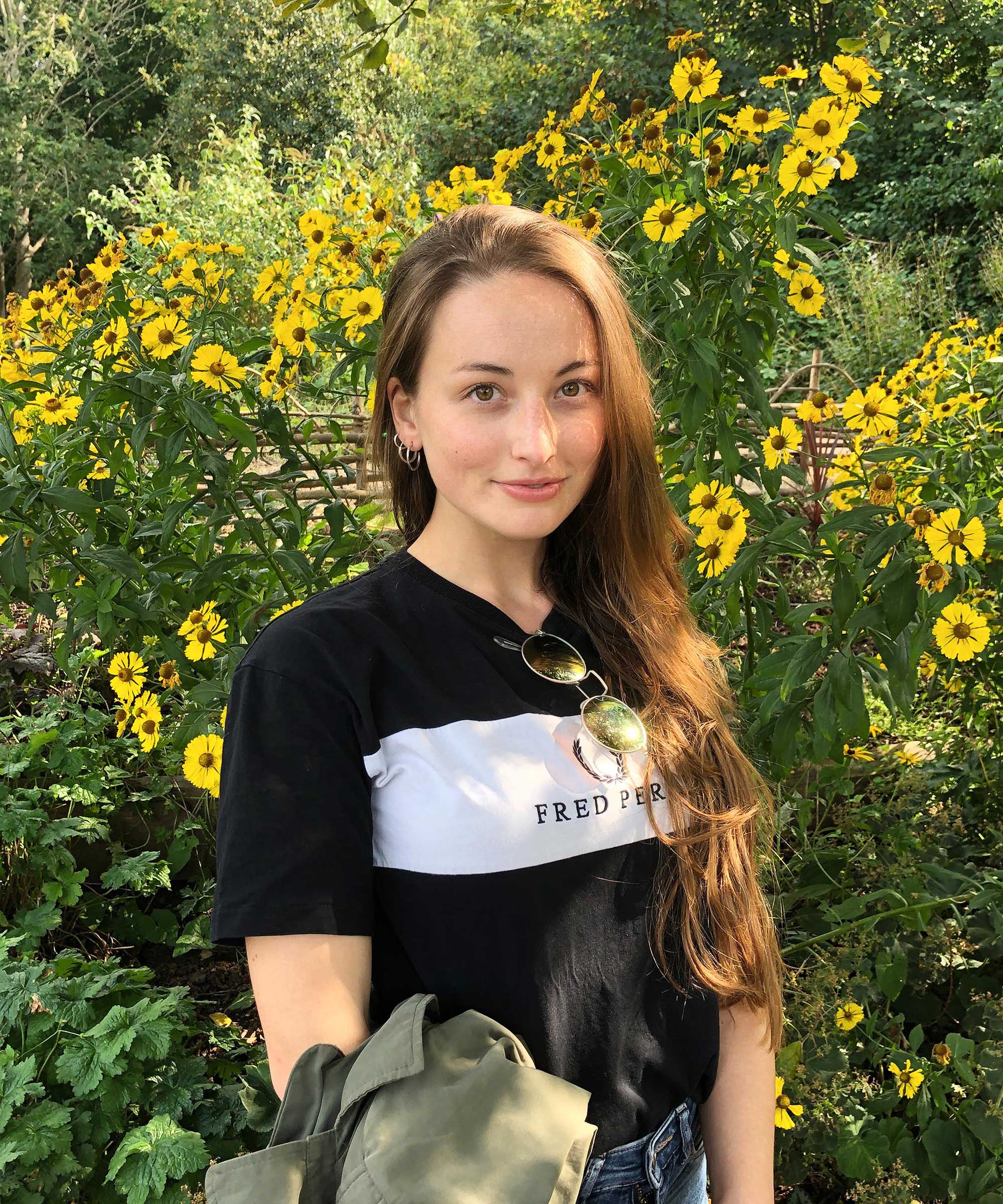
Holly started writing about gardening five years ago, and she is a regular contributor to Homes & Gardens. She has also written many gardening features for Woman & Home and Real Homes, too. She has previous experience as a professional gardener, where she helped to plant and maintain private gardens. Holly has also looked after allotment plots over the years and loves to grow her own flowers and veggies from seed. In her spare time, she enjoys visiting local gardens, botanical drawing, and tending to her ever-growing collection of houseplants.